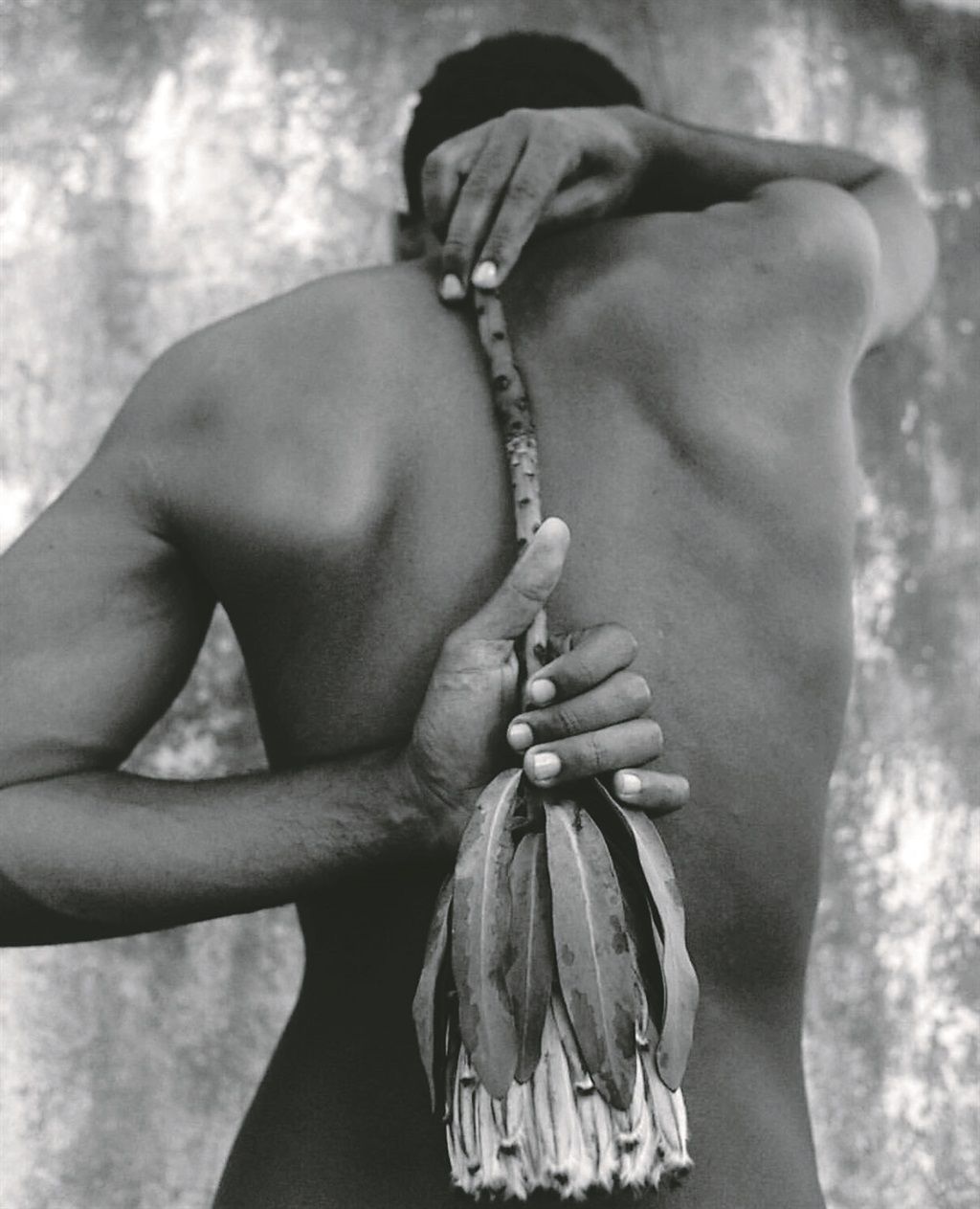
Being tolerated is not enough.
It has been nearly three years since homosexuality was decriminalised in Mozambique under the new criminal code that took effect in June 2015.
And for employers, discriminating against lesbian, gay, bisexual, transgender and intersex (LGBTI) people has been illegal since 2007.
On paper this sounds quite progressive, but how much has actually changed since the law came into effect?
Danilo da Silva, executive director of Lambda, which was founded in 2006 and is the country’s only LGBTI rights advocacy organisation, said it’s a mixed bag.
“From observation, there is more self-acceptance and an increase in visibility in major cities. But some sectors of society were not aware about such a change in the legislation,” he said.
“On social media there was mixed reaction, both good and bad, but people have been feeling more comfortable about coming out.
“There is definitely an increase in the number of people who feel more confident about coming out.”
Da Silva said Lambda recently conducted research about the issues with which queer people in Mozambique struggle.
There is no government, community centre or church that supports the LGBTI community, including HIV/Aids treatment and prevention services.
“Most deal with the unemployed who are unable to provide for themselves. Young people end up in the streets with no family support,” Da Silva said.
Pepetsa Laercio Fumo (24), who’s been living as a trans woman since she was 16, said although her family accepts her now, there is still a sense of not being fully accepted.
“I realised my identity when I was 12 and came out of the closet when I was 16.
“My greatest difficulty is the lack of recognition of my identity. People think you have demons or spirits that contribute to the transphobia,” Fumo said. “There is prejudice everywhere.”
*Marco (32), who works in the government, is employed but at a cost of having to hide his sexual identity.
Employees are protected under Mozambican law which says LGBTI people cannot be discriminated against based on their sexual orientation.
But, Marco said, society doesn’t reflect this.
“Because I work in government I can’t be open with everyone with whom I interact on a daily basis. My fear, irrational or not, is that I won’t be promoted in my career as people are very judgemental,” he said.
“I have to watch how I behave, how I talk and can’t speak too much about my personal life to avoid being suspected of being gay.
“You hear how people talk about gay people, like they’re a disease, and that makes you scared because you don’t want your colleagues to look at you differently. I need friends at work to not feel lonely so I don’t tell them that I am gay,” Marco said.
URBAN BLISS
Da Silva said queer people generally feel safe in the big cities where people can be themselves.
“People feel more secure in spaces where they can express their identity. Lambda works to provide spaces and events where people can be free,” he said.
“Maputo is the best place to be in Mozambique. The population is accepting of LGBTI people as long as they do not display their sexuality too much in the public sphere,” said Marco.
“There’s the youth, high mobility, educated and progressive people living in the cities who are more liberal and provide some level of acceptance for LGBTI people,” he said.
“I don’t hesitate to give my partner a short kiss or hold his hand for a short while.
“We limit contact so as to not arouse too much curiosity about us, but we have no problem showing affection in public here,” Marco said.
The same cannot be said of rural areas where religion and tradition merge to feed homophobia.
“We live in a patriarchal society where men’s bodies are more valued than women’s bodies; men have to procreate and pass on the family name. Mozambican society tends to accept lesbians more than gay men,” Da Silva said.
“Most LGBTI people face stigma and discrimination inside the family. Family is the only support system an individual can get. Mozambique is different from the West, where there is a social security system; being cast out from the family means the person loses everything,” he said.
Abinaida Mondlane, a 31-year-old lesbian who volunteers at Lambda, said it took a long time for her rural family to accept her sexuality.
“It was a very difficult process for my family because they did not expect their first daughter to be a lesbian.
“I remember my mother saying that I must forget that I have mother, father and siblings … that I was a disgrace to them and that I needed help. Even my two best friends distanced themselves from me,” Mondlane said.
She said she has been much happier in the city, where she has connected with other lesbians.
“We are obliged in the rural areas to follow the traditional customs that our parents were taught by their ancestors and which have contributed to the homophobia, but you don’t see it in the city,” she said.
Bruno Azzuorro, a club manager in Maputo, agreed.
“It feels like a constant fight for social inclusion [in the rural areas], the fact that we are not accounted for. It feels as if we’re imposing our existence on people who have restrictions on those who are homosexual.”
He said it was much more difficult to live as a gay man in less urban communities where homophobia is driven by superstition and religion.
“In the city people are driven and open-minded and you are not seen as a sinner. We are part of society and it is just physically exhausting, the lack of willingness and stubbornness to accept the reality that homosexuals do exist,” Azzuorro said.
A ‘SECRET’ UNDERWORLD
Because of the difficulty in finding jobs, some of Mozambique’s LGBTI folk turn to other means of making money to survive.
*Michael (30), who has been in living in Mozambique for the past five years, said he quickly picked up on and became part of an alternative lifestyle led by gay and straight men in Maputo.
He left homophobic Zimbabwe for Mozambique where he already had a welcoming family and lived with his Mozambican mother.
He said “gay for pay” is a thing in Maputo, a known culture of gay men making money from sleeping with straight men who sleep with men and of straight men pretending to be gay to support their families.
“There are a whole lot of things you encounter in the city. There are many open and proudly gay men who accept money and don’t care if people know.
"Then there are men who are married to women and have children but pretend to be gay because they need the money to sustain their households.
“These men aren’t closeted gays or homophobic in any way, they are just trying to make a living. They don’t tell people about what they do because they fear for their reputation.
"They don’t care about sleeping with a gay man, for them it’s just a way to make money.
“Reputation is a big thing in Maputo; people care about what others think of them which is why there are also those closeted men who meet only at night at secret gay-men-only clubs,” Michael said.
A social butterfly, Michael said he had encountered all sorts of men who have come out in recent years because they now feel safe to do so.
“I’ve met men in their 40s who have come out and said they felt free to be themselves in Maputo. It’s not a city where there’s violence or anything towards queer people, it’s just all about reputation,” he said.
FAILED BY FEMINISM
Haldovanda Djive, a 24-year-old lesbian law student and advocate for lesbian and bisexual women’s issues, said she welcomed the new law but wished to see genuine recognition within feminist circles.
“In the feminist movement they have very heteronormative discussions; they don’t look at lesbian women as real women.
"We have to prove every day that we are also women with the same struggles because society believes that women who have relationships with other women haven’t found the right man.
“We have a very weak lesbian movement and I don’t feel represented anywhere. Even in our own LGBTI movement I don’t feel represented because they prefer to discuss gay struggles only and HIV,” she said.
*Andre echoed this sentiment about the lack of intersectional representation in the Mozambican queer space.
“There’s lack of understanding and advocacy for one another in the queer community. We are so busy trying to be recognised and accepted by straight people that we’re not focusing on our own community,” he said.
“There are divisions within the community; we don’t accept one another; things like biphobia and transphobia that we don’t talk about.
"I think we need to focus more on strengthening our community because many people feel left out,” Michael said.
“Internal divisions make the journey to freedom longer.”
LAWFUL BUT NOT RECOGNISED
Even though homosexuality has been legalised in Mozambique, people still feel there are some gaps in the legislation that prevent the full recognition of queer people.
There is still no law that recognises same-sex marriage or one that provides protections for civil unions. Stepchild and joint adoption of children by LGBTI couples is also unlawful.
Decriminalising homosexuality was a breakthrough, but a small one. Queer people still face financial insecurity and fear of being disowned by their families.
For LGBTI Mozambicans the urban landscape cannot be an escape destination forever.
*Not their real names
This series on LGBTI life in Africa is made possible through a partnership with The Other Foundation. To learn more about its work, visit theotherfoundation.org




 Publications
Publications
 Partners
Partners










